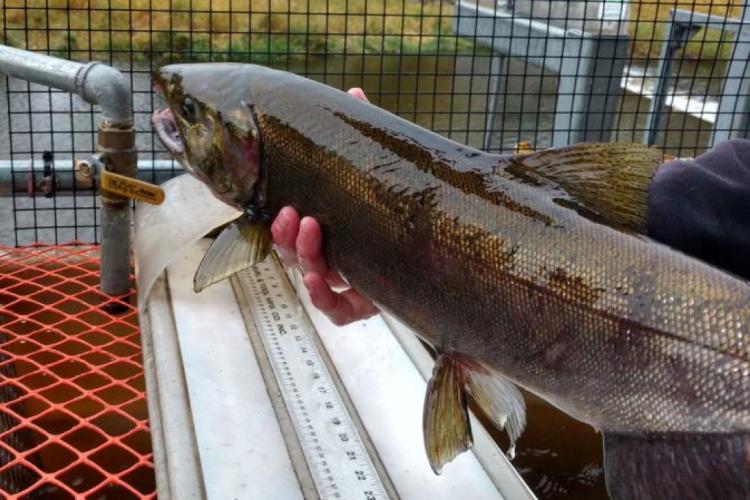The Biden-Harris Administration is investing $60 million for NOAA Fisheries to address tribal priorities and tackle the impacts of climate change on Pacific salmon, as part of President Biden’s Investing in America agenda. Made possible by the Inflation Reduction Act—the largest climate investment in history—these funds are available for upgrades identified as tribal priorities for Columbia River Basin hatchery facilities that produce Pacific salmon through the Mitchell Act.
These funds are part of the historic $3.3 billion provided to NOAA under the Inflation Reduction Act to focus on ensuring America’s communities and economies are ready for and resilient to climate change. It builds on President Biden’s Presidential Memorandum to prioritize the restoration of healthy and abundant salmon, steelhead and other native fish populations to the Columbia River Basin.
“This historic investment by the Biden-Harris Administration furthers NOAA’s efforts to help Americans—including tribes and vulnerable populations—prepare, adapt and build resilience to weather and climate events,” said U.S. Secretary of Commerce Gina Raimondo. “This new funding that was made possible by the Inflation Reduction Act, a key pillar of Bidenomics, is critically important because it will update hatchery facilities to continue to provide the fishing opportunities guaranteed by treaties."
Investments will be responsive to tribal priorities, which NOAA identified in an Inflation Reduction Act-focused tribal consultation. Since 2019, NOAA Fisheries has been working with hatchery operators in the Columbia River Basin to develop a comprehensive list of deferred maintenance and needed upgrades. The investments to advance President Biden’s ambitious conservation agenda outlined in the America the Beautiful initiative. It calls for a decade-long effort to support locally led and voluntary conservation and restoration efforts across public, private and tribal lands and waters in order to create jobs and strengthen local economies while tackling the climate crises.
The funding will focus on shovel-ready and high-priority hatcheries that are funded with Mitchell Act grants—which include the Yakama Nation, the Nez Perce Tribe, and the states of Oregon, Washington and Idaho—are eligible. NOAA Fisheries will distribute these hatchery funds to operators in the Columbia River Basin for deferred maintenance and repairs of hatchery facilities.
The Mitchell Act was passed by Congress in 1938 for the conservation of salmon and steelhead fishery resources in the Columbia River Basin in light of hydroelectric, irrigation and flood control development projects. It supported the establishment, operation and maintenance of hatchery facilities in the states of Oregon, Washington and Idaho, as well as other fishery conservation activities. Since 1946, Congress has continued to appropriate Mitchell Act funds on an annual basis, and NOAA Fisheries has administered the Mitchell Act since 1970.
Please visit the Inflation Reduction Act website to learn about current and future funding opportunities.
Media contact
Lauren Gaches, nmfs.pa@noaa.gov, (202) 740-8314



